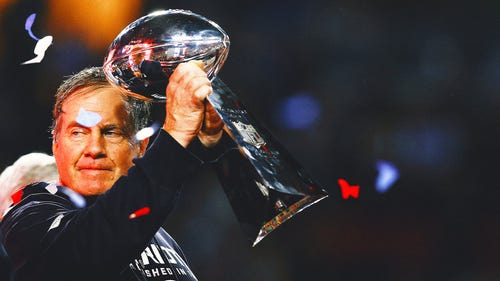
Patriots defense preparing for Tebow's uniqueness
The New England Patriots say they're preparing for Tim Tebow like they do for any other quarterback - learn what he does well and what he does poorly and take advantage of that knowledge.
There's a big problem, though. Tebow isn't like any other quarterback.
''He's a very unique person,'' said Patriots tight end Aaron Hernandez, who played with Tebow at Florida. ''He's a leader.''
Tebow has led the Denver Broncos to a 7-1 record in his eight starts since they opened at 1-4. Their 8-5 mark going into Sunday's home game against the Patriots leads the AFC West.
New England has allowed the most yards in the NFL despite a 10-3 record that's tied for the best in the AFC. They'll have to be very disciplined to deal with the scrambling Tebow. He has flaws in his footwork and throwing mechanics but can run around and over defenders with his 235 pounds.
''He's a big strong guy and he's fearless,'' said Patriots defensive back Nate Jones, a teammate of Tebow's last season. ''You don't want to blow it out of proportion, but you want to take it in stride and prepare how you do every week and know what his strengths are, know what his weaknesses are.
''But anytime you have a quarterback that's mobile, it definitely is a challenge for a defense.''
Pass rushers must try to keep Tebow in the pocket. Outside defenders most hold their positions to stop him from turning the corner. Cornerbacks must stick with their men and not move up when it appears he will run.
Tebow can pass well when he's on the move. He's completed just 48.5 percent of his passes this season, but the Patriots say he's underrated as a thrower.
''He can hit (passes) in the pocket. He can hit them out of the pocket,'' coach Bill Belichick said. ''There are plenty of examples of both.''
Patriots cornerback Antwaun Molden was with Houston when the Texans faced the Broncos last Dec. 26. Tebow scored on a 6-yard run with 3:02 left to tie the game and the extra point gave the Broncos a 24-23 win.
What did he learn from that?
''Be alert. Every play he can hurt you,'' Molden said. ''Some say he can't pass. From what I saw on film ... the guy can pass and he can also run. He's more accurate than what people think.''
At least he is in the fourth quarter.
In that period, he leads the NFL in passer rating, has thrown six of his 11 touchdowns and completed 61.3 percent of his throws.
In last Sunday's 13-10 overtime comeback win over the Chicago Bears, Tebow completed 21 of 40 passes for a season-best 236 yards. In the last nine games, he has led 17 scoring drives in the fourth quarter and overtime.
''You can't play one quarter. You can't play two quarters. You have to play four quarters,'' Molden said. ''That's very imperative that we have to do (that), especially dealing with Tim Tebow.''
The Patriots have had trouble with that. Last week, they held on to beat the Washington Redskins 34-27 when Jerod Mayo intercepted a pass with 20 seconds left. In their previous game, the Patriots beat the Indianapolis Colts 31-24 after starting the fourth quarter with a 31-3 lead.
''From the first quarter to the fourth quarter, play him the same way,'' linebacker Rob Ninkovich said. ''Keep him in the pocket and don't let him beat you with his feet. And play him tight.''
Some teams have assigned one player to watch Tebow and follow him wherever he goes on certain plays. But that ''spy'' system can only work if that player can bring Tebow down.
''You need somebody that can tackle the quarterback,'' Belichick said. ''(It) depends on what the quarterback's skills are. I don't know if you want to spy (Ben) Roethlisberger with the same guy you'd want to spy Michael Vick with. It depends on who the player is. There's no point in spying him if you can't tackle him.''
If that player misses, a defensive back might have to rush up to help. But if he does that too soon - before a scrambling Tebow crosses the line of scrimmage - that may leave a receiver wide open downfield.
So it's a tricky challenge requiring swift, sound decision-making.
''There's fundamental rules of football that you follow,'' Jones said. ''You cover to the end of the play and it basically comes down to ... everybody doing their job. If everybody does their job and nobody tries to do somebody else's job, we'll all be fine.''










